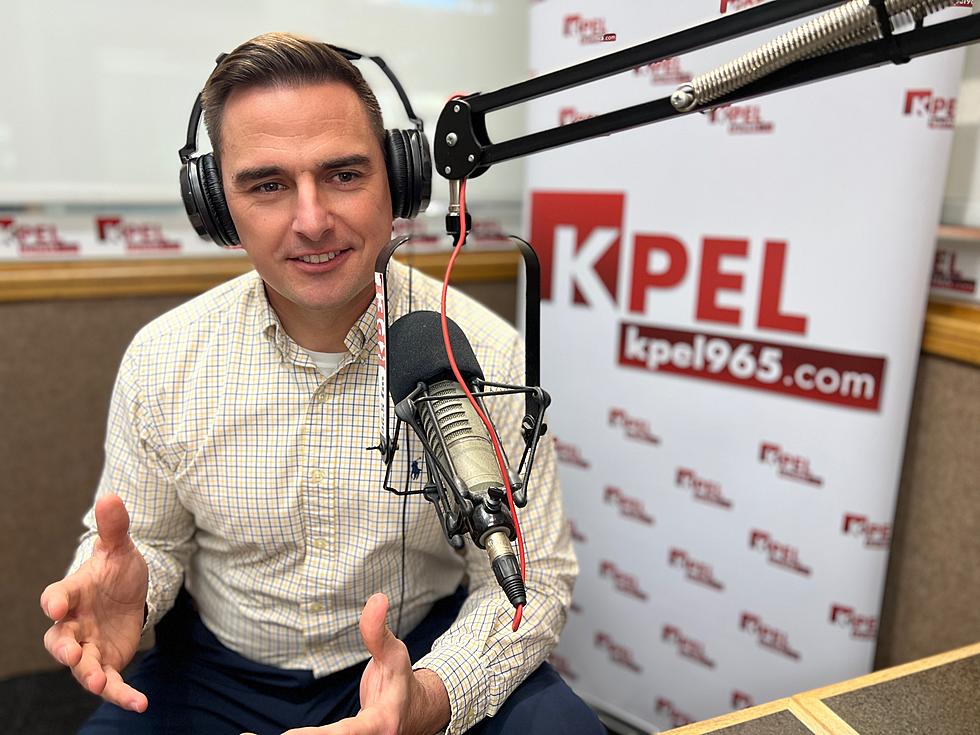
Commentary: How Did the Formula Shortage Happen?
For weeks now, the growing formula shortage in the United States has been one of the hottest topics both in politics and at the kitchen table. In many cases, you can find your basic formula in stores. However, those living in larger urban areas are finding more and more of the shelves empty.
In particular, we've found that specialized formulas and those targeting kids with special dietary needs are harder to come by. Still, for many, shortages (and resulting price hikes) are making the situation dire for families across the country.
The question for many is this: How did we get to this point?
Scott Lincicome, Director of General Economics and Trade at the Cato Institute, explained on the Joe Cunningham Show on Tuesday.
Lincicome also wrote a detailed explanation at The Dispatch last week.
As he explains, the pandemic was a big factor in getting us to where we are. Parents who were concerned with shutdowns and shortages stockpiled formula, putting a strain on the available supply. However, when some babies became sick seemingly from formula produced by Abbott, the nation's largest producer, the FDA shut them down in order to investigate. However, the FDA also moved slowly in response to the issue, drawing out the plant's shutdown.
Further exacerbating the issue is a host of restrictive trade policy and federal red tape, making it incredibly difficult to import baby formula from other parts of the world (particularly, as Lincicome pointed out, Europe).
Luckily, that major producer, Abbott, and the Food and Drug Administration (FDA) have come to an agreement to get the plant open again so production can continue. At the same time, as we reported here at KPEL last week, the U.S. government has launched a website to help struggling families find formula near them.
The site launched by the Department of Health and Human Services is at HHS.gov/formula. It features information including manufacturer hotlines, community resources and other guidance. WIC-eligible families will also find a link on the site for them to reach out to a local office for assistance.
You may recall on Thursday, President Joe Biden announced that his administration would be stepping up its response to the shortage that has forced worried parents into online groups to swap and sell baby formula to keep their babies fed.
The president held meetings with executives from Gerber and Reckitt about how they could ramp up production and how his administration could help. He also talked to leaders from Walmart and Target about how to restock shelves and address regional disparities in access to formula.
Read More: National Website Launched to Help Families Find Baby Formula | https://kpel965.com/federal-government-launches-website-to-help-families-find-baby-formula/?utm_source=tsmclip&utm_medium=referral
The Biden Administration has also promised to ease some of the regulatory burden on the importation of baby formula, but is it too little, too late?
The Biden Administration is trying to pin a lot of the blame on Abbott only, leading the company to fight back on Twitter days before their agreement with the FDA to re-open the plant.
As it turns out, the Biden Administration's FDA may have been even slower to respond to the crisis than we realized. According to POLITICO, the FDA knew about issues at the Abbott plant months before the reported infant deaths.
A former employee at Abbott Nutrition’s Sturgis, Mich., infant formula plant flagged concerns about food safety violations directly with senior FDA officials in October — months before two infants died and another was hospitalized from bacterial infections after ingesting formula made at the plant, according to a document reviewed by POLITICO.
In a 34-page document sent to officials Oct. 19 and 20, the whistleblower outlined allegations of lax cleaning practices, purposely falsified records and efforts by plant officials to keep FDA from learning about serious issues related to the plant’s own system for checking for bacteria in formula, among other things. The warning came weeks after health officials in Minnesota had already reported to both FDA and CDC that an infant in the state had been hospitalized for Cronobacter sakazakii — a rare but deadly bacteria — after consuming formula from the same plant.
Hard copies of the disclosure were sent via FedEx to senior food safety officials and other leaders at FDA. They included FDA’s top official, then-acting Commissioner Janet Woodcock, Susan Mayne, director of the Center for Food Safety and Applied Nutrition, Judy McMeekin, associate commissioner for Regulatory Affairs and Catherine Hermsen, assistant commissioner of the agency’s Office of Criminal Investigations.
In addition to the serious questions raised about Abbott Nutrition’s food safety practices, revelations of an early whistleblower warning reinforce concerns about leadership and decision making on food issues at the agency, something POLITICO reported on in an investigation earlier this month, as well as the rigor of FDA’s plant inspections.
One of the biggest problems we have in the United States is trade and regulatory policy that overly protects U.S. dairy (the primary ingredient in baby formula) to the point that a minor labeling issue like European formula labels not saying "Iron Free" on them keeps much-needed supply out of the United States. The FDA literally seizes whatever European product it finds, leaving struggling parents to find their formula through the black market.
Which, as you can guess, comes with all sorts of risks all on its own.
It appears that we never actually needed to get to this point. It could have been solved months ago. But the federal regulatory state is both cumbersome and slow-moving, making worse a situation that didn't even need to happen in the first place.
We don't need trade restrictions to make getting more formula into the U.S. marketplace harder. Formula is a vital need in the U.S. You are literally giving the most vulnerable people in our nation fewer options when it comes to a basic need like food. And, while it's noble to want to protect the U.S. dairy farmers who produce the dairy used in baby formula, it's also yet another example of the government picking winners and losers.
The regulatory state desperately needs to be scaled back on this and so many other issues. The problems these policies have caused are now directly impacting American families and forcing them to make tough choices about how to care for their children. Some babies have special dietary needs, and many parents are now struggling to come up with alternatives for their children (and those alternatives simply don't meet the babies' needs).
It's a good reminder that for all the government tries to fix problems, it frequently just creates more headaches for itself and, more importantly, the very citizens it is supposed to serve.
$4.9M Home for Sale on Vermilion River in Lafayette
More From News Talk 96.5 KPEL









